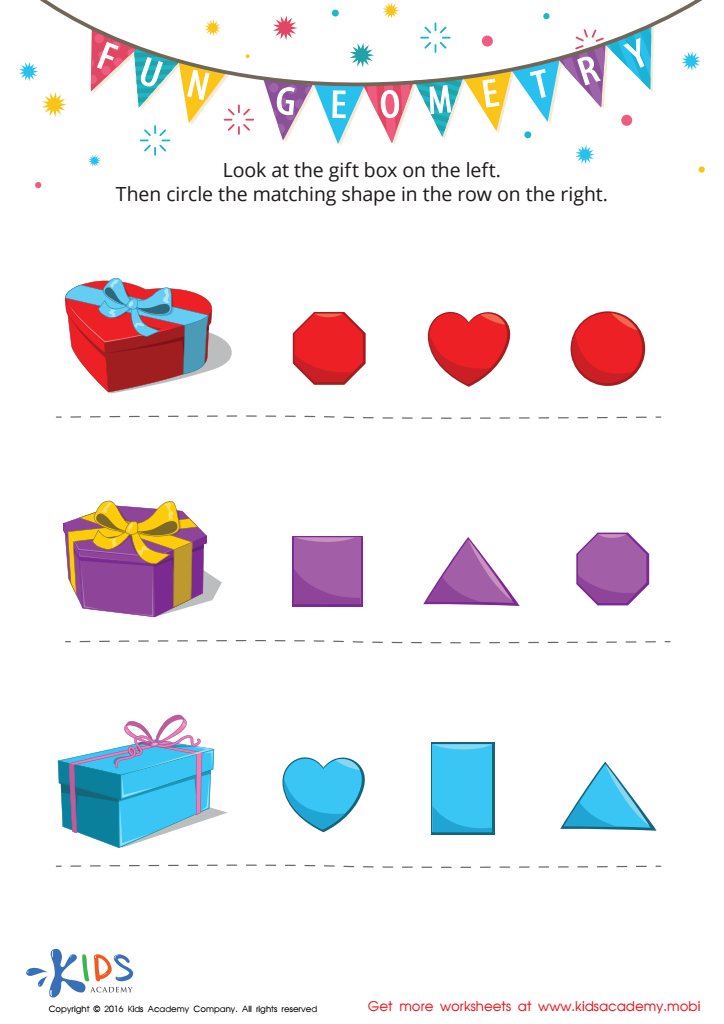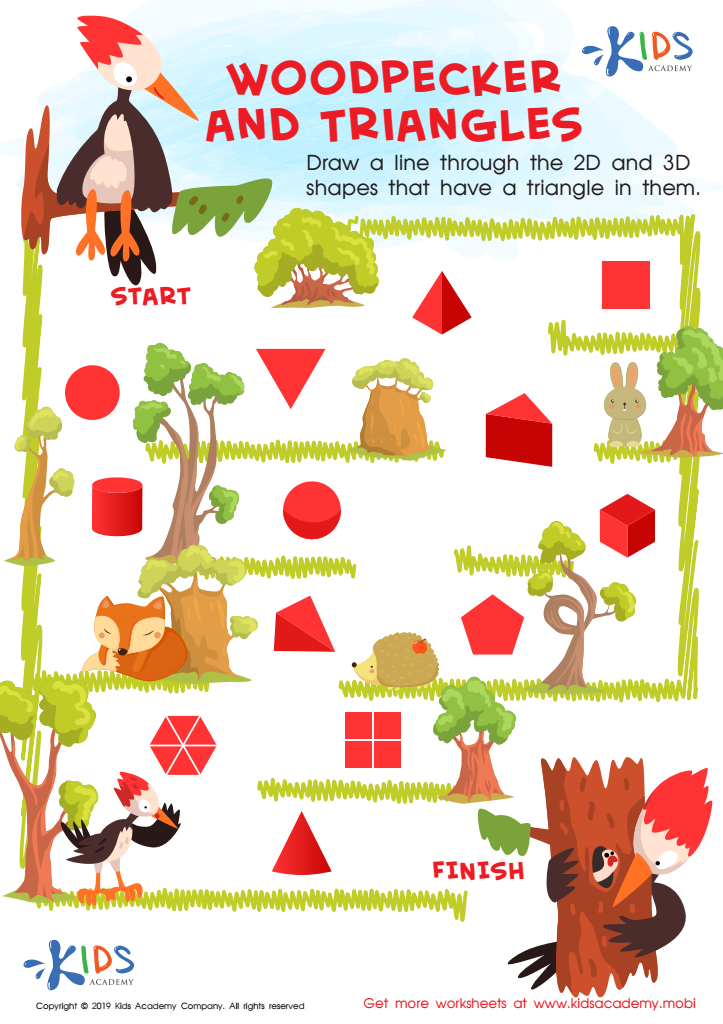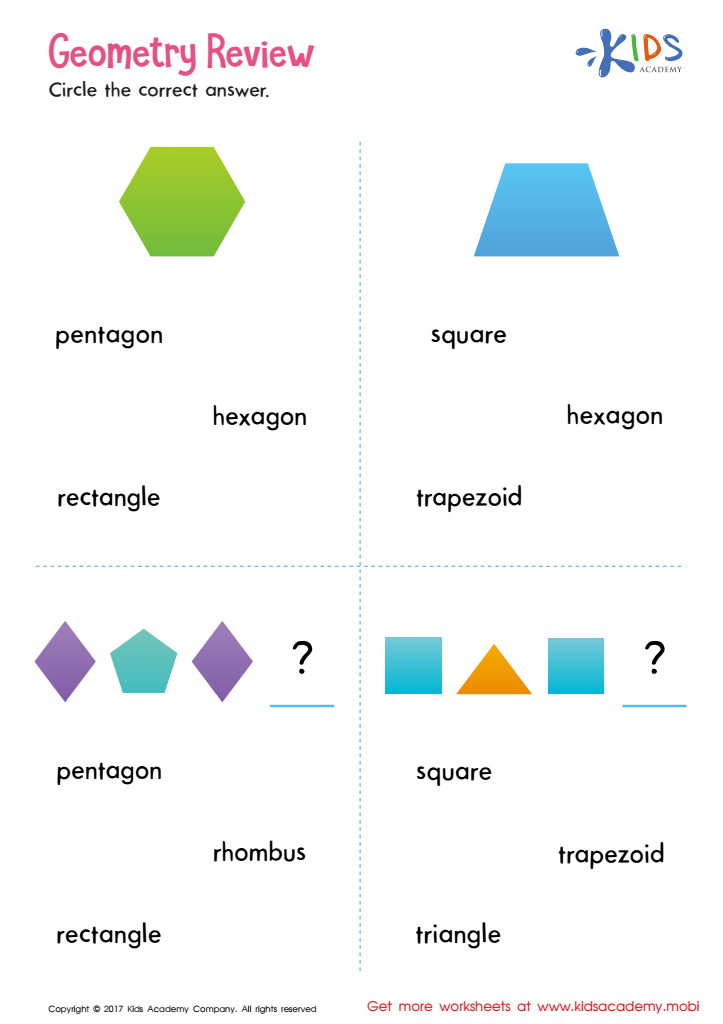Basic geometry understanding Extra Challenge Geometry Worksheets for Ages 5-9
3 filtered results
-
From - To
Explore our "Basic Geometry Understanding Extra Challenge Geometry Worksheets" designed for children aged 5-9. These engaging worksheets provide an extra challenge for young learners, helping them master essential geometry concepts such as shapes, symmetry, and spatial relationships. Our activities are carefully curated to foster critical thinking and problem-solving skills while making learning fun and interactive. Ideal for both classroom and home use, these worksheets support personalized learning at each child's pace. Boost your child’s geometry skills today and watch their confidence soar! Visit our website to download and start exploring the world of geometry with your little one.


Fun Geometry Worksheet


Woodpecker and Triangles Worksheet


Geometry Review Printable
Basic geometry is fundamental for young children's cognitive development and understanding of the world around them. Providing an extra challenge in geometry for ages 5-9 can greatly boost children's spatial reasoning, problem-solving skills, and mathematical intuition, laying a strong foundational base for future learning.
First, learning basic geometry helps children recognize and describe shapes and their properties. This early exposure fosters important skills like pattern recognition and spatial awareness, crucial not only in math but also in everyday life activities. For instance, identifying shapes and understanding spatial relationships helps children follow instructions, organize their environment, and even navigate spaces better.
An extra challenge in geometry can also develop critical thinking skills. By engaging in tasks that require more thought and effort, children learn perseverance and build problem-solving techniques. When they successfully navigate complex geometric problems, it boosts their confidence and stimulates their curiosity towards mathematics and other disciplines.
Furthermore, an enriched geometry learning experience integrates well with other academic subjects. For example, in art, understanding shapes can improve drawing skills. In science, grasping concepts like symmetry contributes to a better understanding of natural phenomena.
In summary, an emphasis on geometry, especially through challenging exercises, nurtures a child's intellectual growth, making them more adept at thinking critically and creatively, which are essential skills in both academics and daily life.
 Assign to My Students
Assign to My Students


























